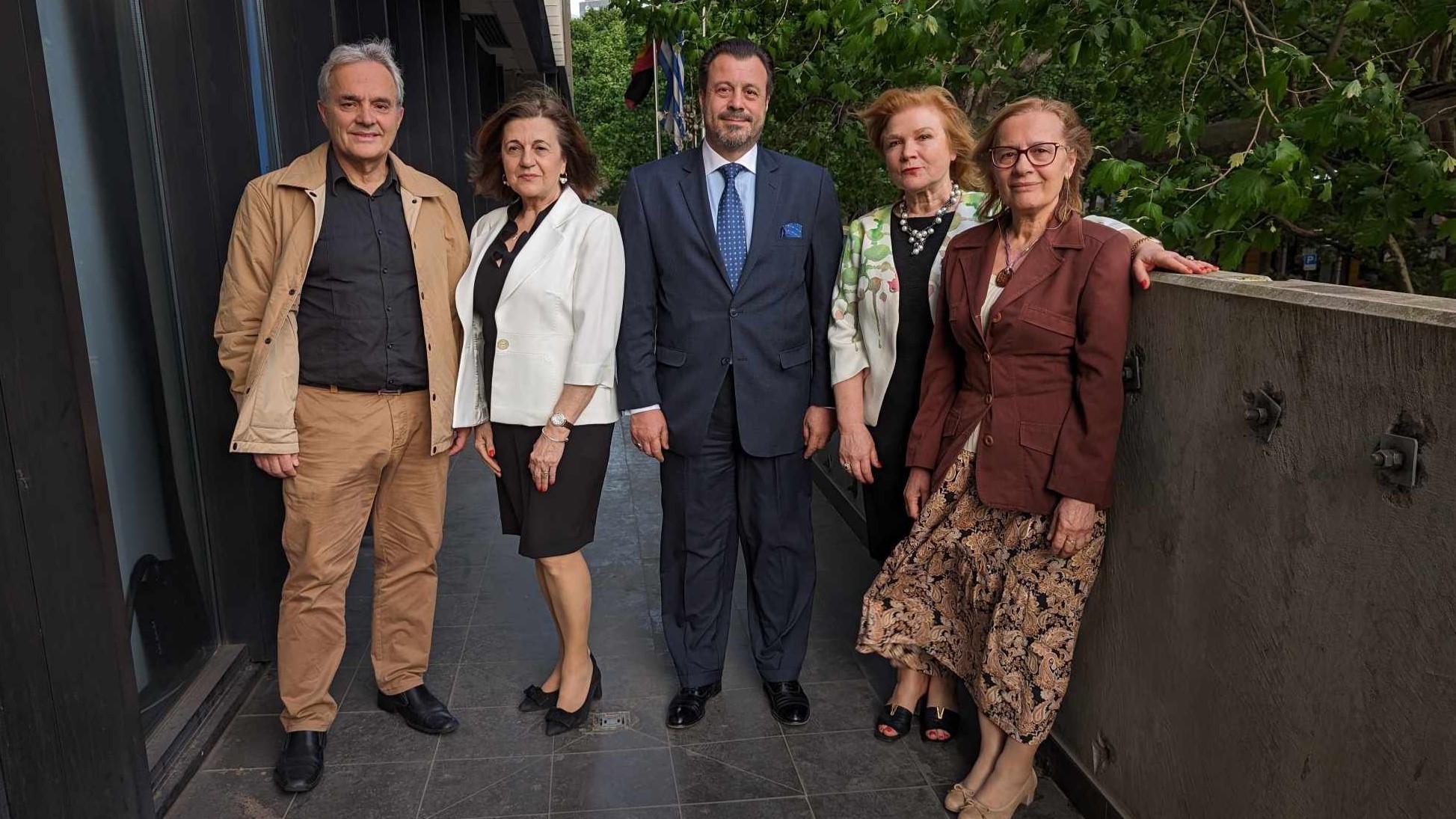By Mary Sinanidis.
Greece’s resounding ‘OXI’ (No) to the Italians on October 28, 1940, a pivotal moment that marked the country’s entry into World War II and ultimately led to the German occupation, remains etched in history.
On Sunday, however, the Thessaloniki Association “The White Tower” chose to shine a different light on the past, commemorating 111 years of liberation for Greece’s second-largest city.
The event took place at Melbourne’s Greek Centre, jointly hosted by the Greek Community of Melbourne, the Hellenic Writers’ Association, and the Hellenic Women’s Cultural Association. Despite the array of prestigious hosts, only a modest audience of 30 gathered to explore the Thessaloniki War Museum, guided virtually by Konstantinos Gioulekas MP, a lawyer, journalist and politician.
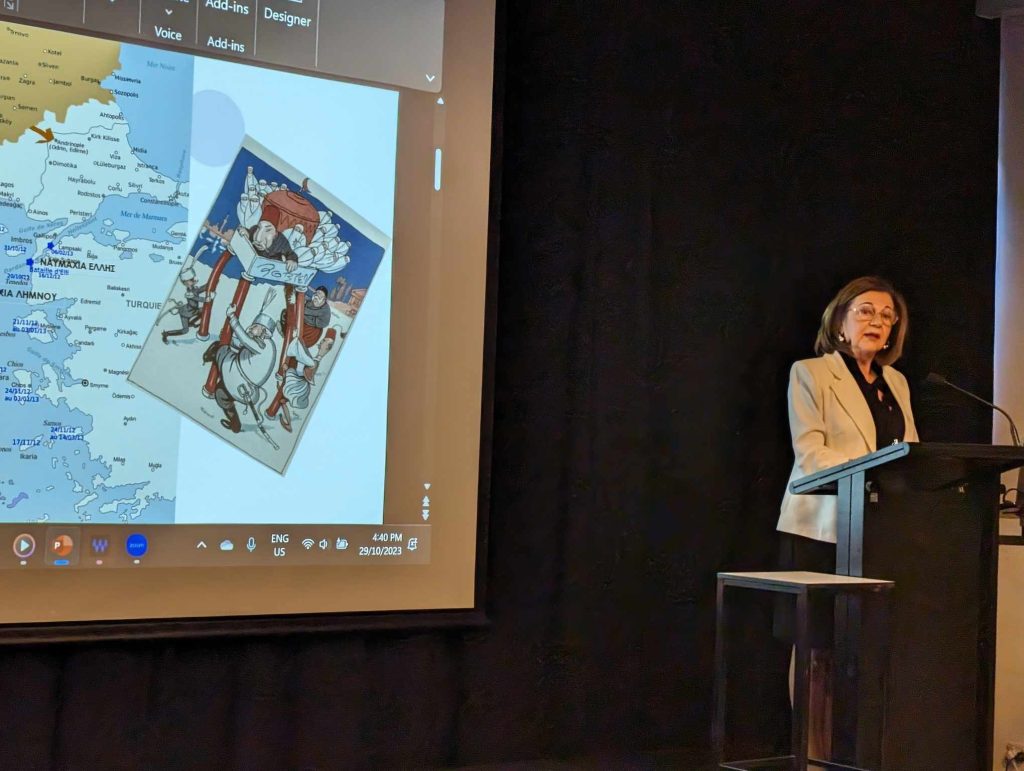
As Mr Gioulekas greeted the gathering with a warm, “Good morning from here, good evening to you. What’s the weather like in Melbourne?” a charming connection bridged the geographical gap between the two cities, both enjoying a pleasant October Sunday.
“It’s like you’re here,” Iakovos Garivaldis responded.
Despite the dodgy internet, Mr Gioulekas embarked on a captivating journey through the museum, periodically pausing to field questions from the Melbourne audience, who directed him to artefacts that piqued their interest. He introduced the collection with pride.
“These are heirlooms I’ve been gathering since I was a kid, and I continue to collect. A document, a letter, and today the collection has grown to around 680 costumes, thousands of newspapers, and it is important that these have now left my hands as a private collector and have been taken over by a state organisation, and a war museum at that, because this is their natural home,” Mr Gioulekas said.
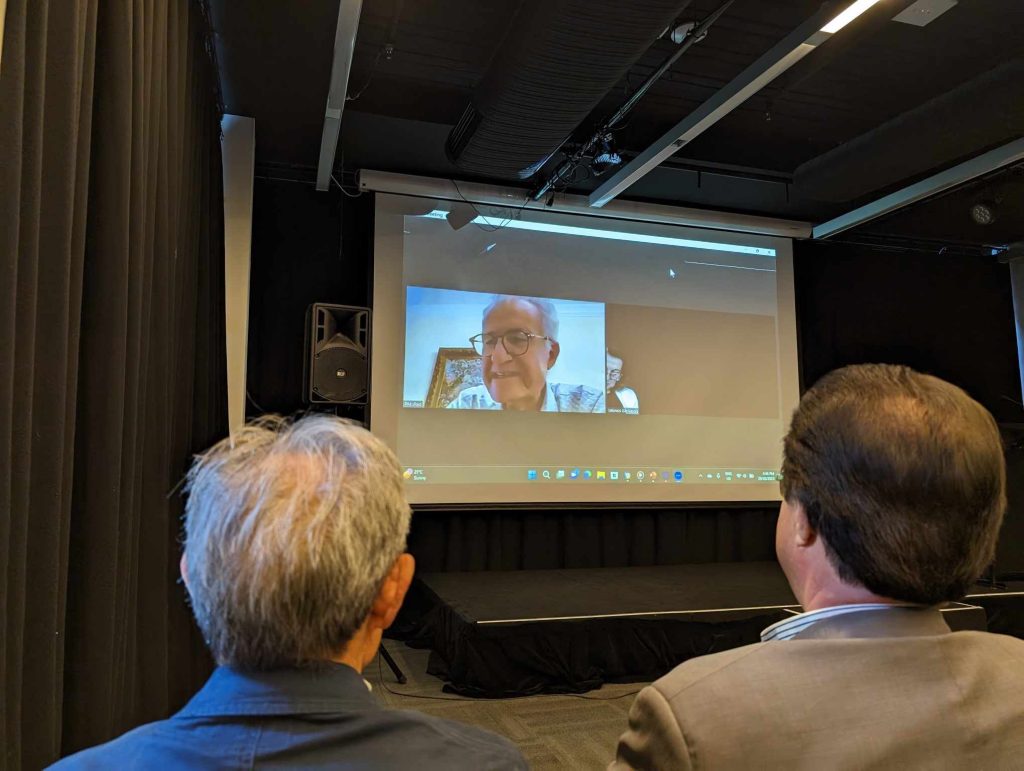
His impassioned address underscored the significance of these artefacts for younger generations who may never have the opportunity to hear first-hand accounts of October 1912, when Thessaloniki finally broke free from Ottoman rule.
Mr Gioulekas regaled the audience with heartwarming anecdotes from his meetings with key figures of historic events. He recounted an encounter with legendary resistance singer Sofia Vembo who spoke of a blind man she had consoled. He had said, “I’m not crying, Sofia, because I lost my two eyes; I’m crying because I don’t have another two to give to my country.”
The virtual tour offered Greek Australian audiences a glimpse of front pages and a chance to view blood-smeared documents, such as a printed order pierced by the bullet that ended George Michalakis’ life.
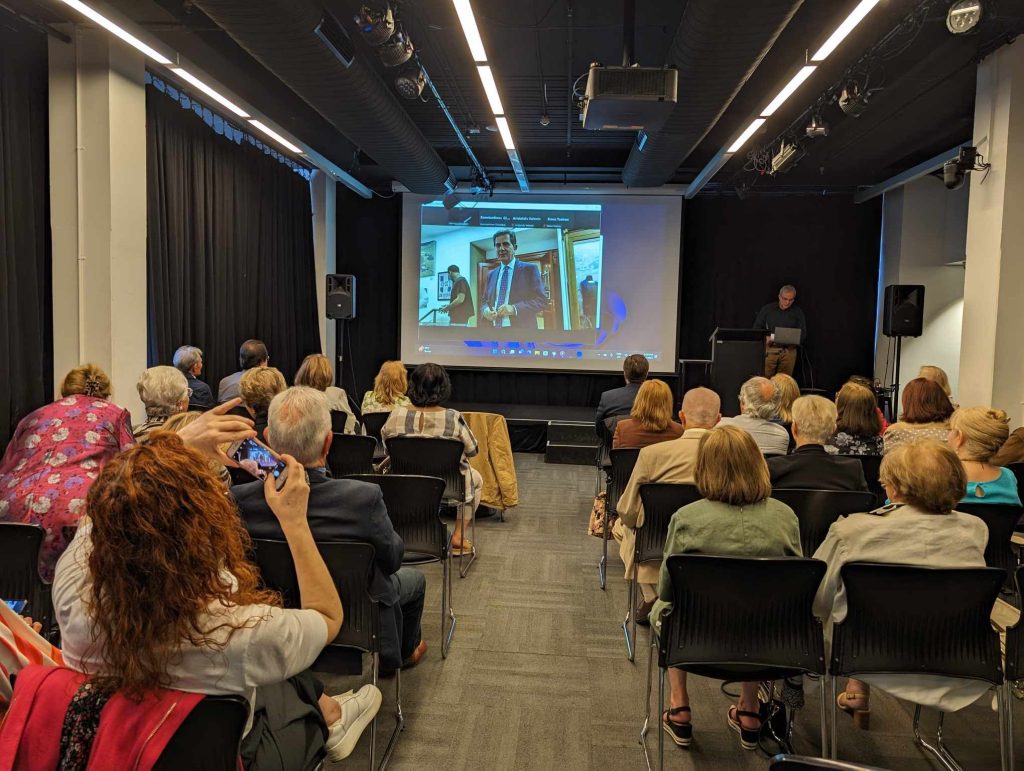
Mr Gioulekas also shared the story of an elderly German soldier who returned to Greece years after the war, bearing two photographs displaying the blood-splattered head of Anastasios Mitsios, a man executed shortly after his battalion surrendered. These photographs were offered to Mitsios’ son.
Addressing the diaspora, Mr Gioulekas reminded them of the profound impact they can have.
“You carry Greece in your heart,” he said. “I am one of those politicians who believe that the greatest strength of Hellenism is our diaspora. By creating ‘guardians’ of Hellenism in other countries, our national interests can be served. You can help.”
Emmanuel Kakavelakis, the Greek Consul General in Melbourne, gave a thought-provoking reflection on history’s intricate threads. He noted that it was on October 26, 1912, when freedom bells first rang in Thessaloniki. Just two days later, on October 28, Tahsin Pasha signed the document of surrender in the presence of officers Viktor Dousmanis and Ioannis Metaxas. The latter, would, on the same day 28 years later, defy an ultimatum from Italian dictator Benito Mussolini.
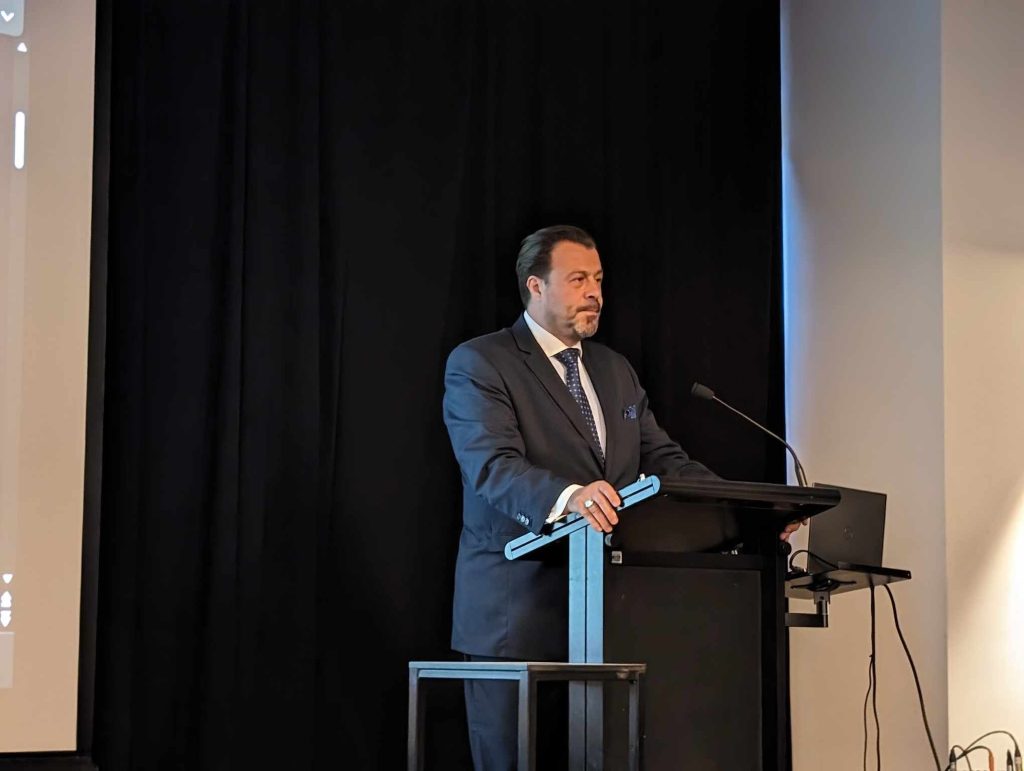
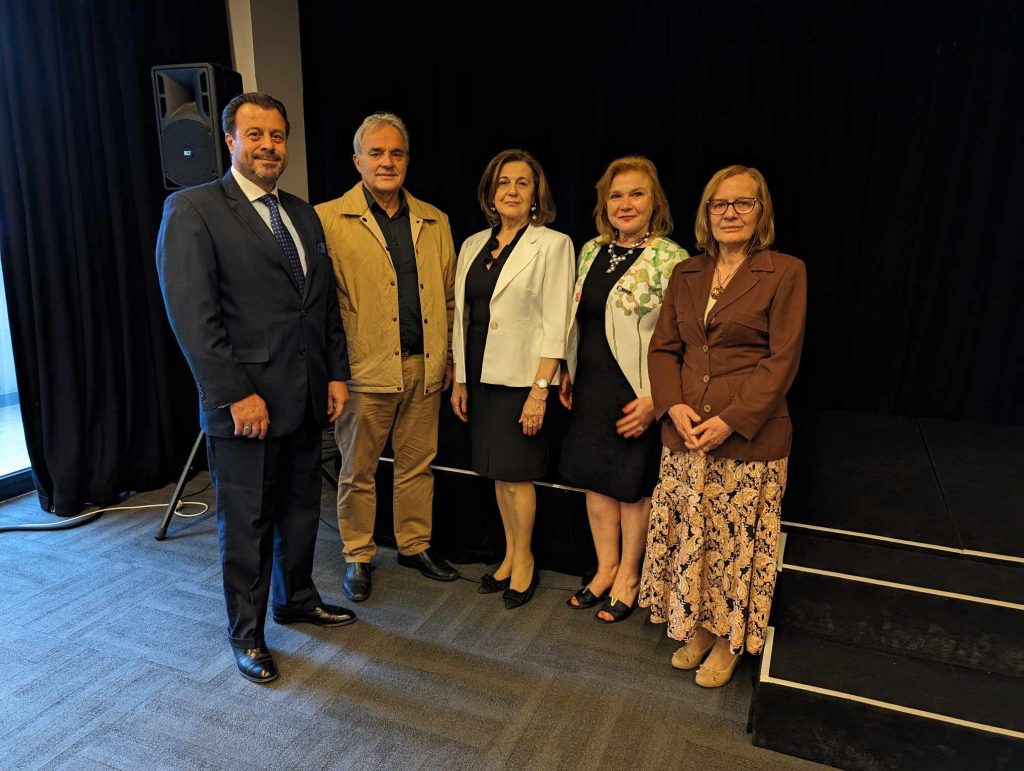
Sunday’s event on the Liberation of Thessaloniki did not touch upon Turkish President Recep Tayyip Erdogan’s latest comments from Istanbul lamenting the loss of Thessaloniki, Greece, and other territories of the Ottoman Empire. The Turkish leader said these territories were “as much a part of us as our blood, our life, and our love.”
Such comments show the fragility of the Balkans, a landmine of land claims where echoes of the past still linger, stirring complex emotions and demonstrating the importance of preserving history and culture while working towards a more harmonious future.
